 I'm not always a sucker for freebies. I can walk right past the bank's basket of free pens, knowing I already have plenty of pens at home. I routinely decline free t-shirts, mugs and other paraphernalia. Just more stuff to accumulate and eventually have to weed out. Books, however, are another matter—I can't pass up a free one unless I'm absolutely sure I'll never read it (and even then I'll probably take it, figuring I can pass it along to someone else). So when I received an email offering a chance at a whole box of books by one of my favorite authors, there was no way I could resist! 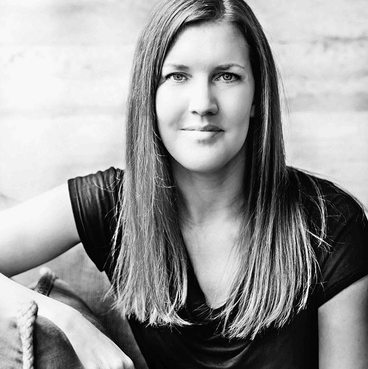 Lene Fogelberg Lene Fogelberg The email was from author Lene Fogelberg, with whom I became acquainted through She Writes, an online community of women writers. To celebrate the one-year anniversary of the publication of her memoir, Beautiful Affliction, Lene was offering to send a box of copies to each of two book clubs (or other groups of readers). All she asked in return was that readers consider reviewing the book on a platform of their choice, such as Goodreads, Barnes & Noble or Amazon. 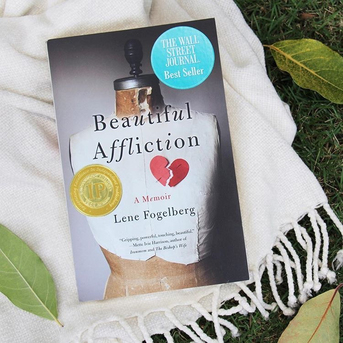 The first two people to respond on behalf of their book group would get the books. I don't belong to a book club, but my Monday morning yoga group (which still meets to practice weekly, even after the devastating loss of our teacher Ellie) often shares and discusses books during our post-yoga breakfasts. I had read Beautiful Affliction—Lene's gripping account of living with (and almost dying from) an undiagnosed heart condition—soon after it was published. The book quickly became one of my most-recommended memoirs (see my review here), so I jumped at the chance to share it with my yoga sisters. 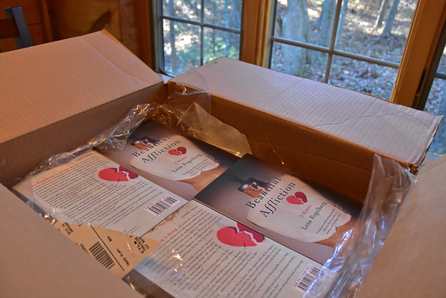 The box of books! The box of books! Apparently I jumped quickly enough, because mine was the second response, and in no time, a box of books arrived on our front porch. I passed them out at breakfast last week, and already my friends are talking about starting a discussion group to share thoughts about the book. Meanwhile, Lene (pronounced LEN-ay) has graciously agreed to answer some questions about life as the author of a highly-acclaimed book. 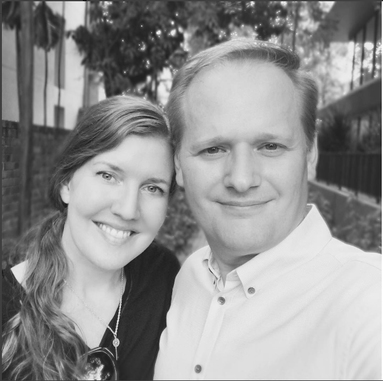 Lene and husband, Anders Lene and husband, Anders How has life changed for you and your family since the publication of Beautiful Affliction? Before publication writing was very private. Now I am also busy engaging with readers, giving interviews, and connecting with people. So I have less time to write nowadays, and I have to be protective of that time, since it is easy to be distracted. There is also increased pressure and expectations to be met, the next novel for example. But I have realized there will always be a "next project" in the works, and I need to find peace in this lifestyle that I have chosen. 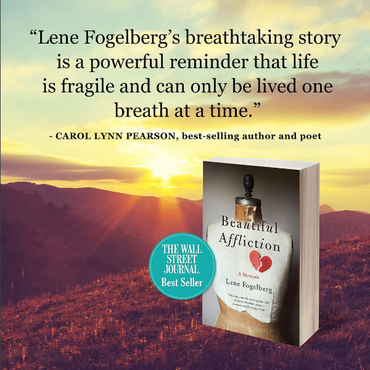 What have been the biggest surprises—either positive or negative—about being a published author? I have been met with such amazing kindness and generosity, both from readers and fellow authors, which really has taken me by surprise many times. I have received letters from readers telling me how my story helped them that just made me weep. At the same time, the book industry is extremely competitive, even more than I thought it would be, and I think I have developed a thicker skin since publication a little over a year ago. That is the eternal dilemma of writers and poets, to maintain the sensitivity needed to write, in an industry that ultimately, like most industries, is money- and profit-centered. 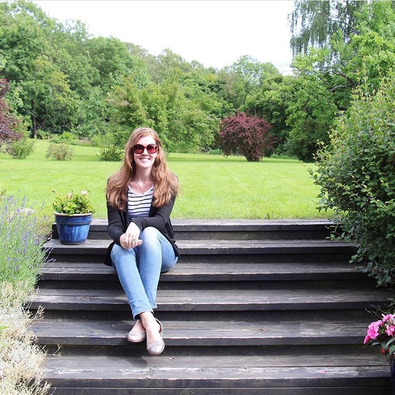 Does being an author connect you with people you otherwise might not have come in contact with? If yes, can you elaborate on the experience and how it has affected you? How do you nurture those connections? Do you ever feel overwhelmed by them? I love to connect with writers and readers, and I am grateful for many new friends that I have met, mostly on-line, this past year. It can be a little overwhelming at times, especially when I am asked to do things that I don't have time for. I have often wished I had more hours at my disposal; it is frustrating to have to say no, when I am finding myself in this business that I love and just want to shout a big Yes! to all the interesting propositions I get. 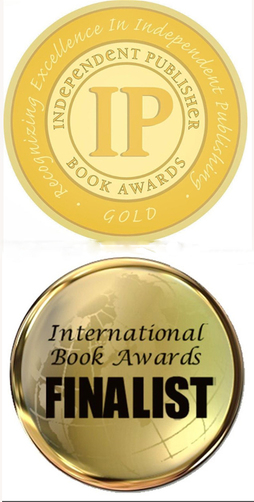 Beautiful Affliction received a gold medal in the Autobiography/Memoir category of the 2016 Independent Publishers Book Awards and was a finalist for the 2016 International Book Awards Beautiful Affliction received a gold medal in the Autobiography/Memoir category of the 2016 Independent Publishers Book Awards and was a finalist for the 2016 International Book Awards All writers have to deal with discouragement and doubt at times. How have you dealt with those negative emotions? I have learned that many discouragements needn’t be as personal as we tend to make them. The book industry is a very tough market to break into, and every new author has to find his or her own way into it. I keep reminding myself that things will work out, and I try to stay positive at all times. In my experience rejection, even though it hurts, can be an opportunity to find an even better way for you to move forward with your project. After Beautiful Affliction was rejected by some Swedish publishers, I rewrote it in English, found a publisher in the US, and within ten weeks of publication it climbed to #3 on the Wall Street Journal Bestseller list and landed me a contract with a New York Literary Agency. So one never knows what opportunities lie beyond a rejection. It might be for the best.  Lene, writing on the roof Lene, writing on the roof You mentioned the novel you're working on now. Was it difficult to shift gears from memoir writing to novel writing? Is your process any different for writing fiction? For me, every book has its own personality and its own birth process. But I think that on the whole I have found out how I like to work. I put in a lot of work in the beginning; finding a structure, how to tell the story, and then I set out to find the voice. When I have found the tone, I write through the whole story, creating a first draft. Then the story rests. When I am ready to dig in again, I edit it thoroughly, often rewriting and rewording the whole thing, going through it at least two times. The editing takes a lot of time since it is interrupted by research as well as polishing the language and cutting and tightening the story. I try to do most of the substantial editing in the first draft, but there’s always something that leaks into the next phase, some sort of restructuring. In Beautiful Affliction I ended up cutting whole chapters that were in their final edit stage, and I never regretted it. Of course with the novel I feel more free than with the memoir, where I had to stay true to my story. What can you tell us about the novel? It is a hilarious and heartbreaking family drama told by a very unusual protagonist, taking place in Jakarta, where I mix East with West and urban life with ancient myths of Java.  Taking a poolside poetry-writing break Taking a poolside poetry-writing break You've also returned to writing poetry. On your blog, you wrote about losing touch with poetry during the years that your illness was undiagnosed and then finding your way back. How did finding a way out of illness reconnect you with poetry? When I was dying and no-one (except my husband) believed me, a lot of interests seemed to slowly die with me; for example, I loved to paint and actually wanted to become an artist, but I was too weak to hold up the brush to the canvas. I had to focus my energy on surviving and taking care of our small daughters. I lived in a state of exhaustion and panic, where there was no room for writing poetry. I still feel like it's a luxury to be able to do something that I love, writing, which was the interest that stayed with me the longest through my illness. In that way my illness helped me find my biggest passion, which I am grateful for. But finding my way back to poetry is like finding a piece of myself that has been missing. Maybe one day I’ll also take up painting again.  Kuala Lumpur, Malaysia, where Lene Fogelberg and her family now live Kuala Lumpur, Malaysia, where Lene Fogelberg and her family now live You're a Swedish woman living in Asia, and you've also lived in the US. How do you find and sustain community when you're an "outsider"? Is it important to you to be part of a writing community? If so, where have you found that? I have found writer friends through my blog, Twitter, Facebook, Instagram and also through my publisher She Writes Press, where there is a great community among fellow authors. I feel it is a great time to be a writer; the days are gone when a writer had to sit alone in a chamber to write, there are lots of friends to be found out there. My writer friends have been invaluable during the journey of publishing Beautiful Affliction, giving support and advice. 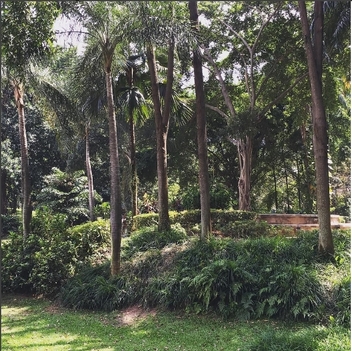 An urban park in Kuala Lumpur An urban park in Kuala Lumpur In Beautiful Affliction, you detail the formidable health challenges you've faced throughout your life. How do you care for your health now, while meeting deadlines and the other demands of the writing life and family life? I love to go for walks, which is my preferred way of exercise. It clears my mind and lets me plan my writing or follow a trail of thoughts without interruption. In Sweden I went for long walks in the woods. In Asia we have a more urban lifestyle, but I try to go for walks in our neighborhood, especially during the dry season. Now it is wet season, so I have to get out before the rain starts or I’ll have to wait until the next day. 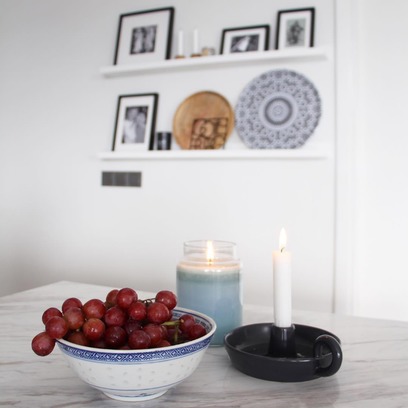 A holiday celebration at home in Kuala Lumpur A holiday celebration at home in Kuala Lumpur In what other ways do you seek—and find—balance in your life? Expat life is a bit unbalanced, living far from extended family and friends. I love hanging out with my husband and our daughters, and we love making new friends in the places we move to. I usually spend my days writing when the girls are in school and my husband is at work, so I can spend time with them when they come home. 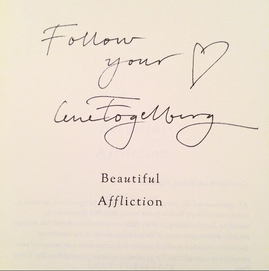 Author signature on title page of Beautiful Affliction Author signature on title page of Beautiful Affliction Is there anything else you'd like to add about Beautiful Affliction, the past year, writing, or life in general? When I wrote Beautiful Affliction I wrote the book I felt that I would have wanted to read during the years when I felt alone and misunderstood. In a way I wrote it for my younger self to help me see beauty even though life can be really, really hard. Early on in the writing process I realized that in order to tell my story honestly, I had to be vulnerable and show some of my most difficult moments. I was very nervous before publication how this would be received, but since then I have had readers write me and tell me how learning about my struggles helped them with theirs, and that made it all worth it. I feel that reading and writing is all about connecting and learning that we are not as alone as we might think. Thank you to Lene Fogelberg for the use of her photographs.
6 Comments
What a lovely gift you won! Lucky you and lucky yoga gals. I bet you'll have some lively discussions about the book. I'm going to put it on my TBR list. Really enjoyed the interview and photos with Lene. No matter how famous or not so famous, we can identify with her feelings. Have a wonderful Thanksgiving, Nan!.
Reply
Nan
11/26/2016 01:15:05 pm
Thanks, JQ! Definitely a worthy addition to the TBR list!
Reply
Sally Kane
11/26/2016 12:56:28 pm
What an insightful interview. I enjoyed the questions and felt they pulled deep responses from Lene. I can't wait to read this memoir even more so after reading this wonderful promotion.
Reply
Nan
11/26/2016 01:15:51 pm
Looking forward to hearing your thoughts on the book when you've had a chance to read it, Sally.
Reply
Laura B
12/11/2016 10:20:11 am
Really liked this interview! Love reading about roundabout routes to publishing success. Great questions. (Also, I noticed you referenced SheWrites, isn't that a great website?)
Reply
Leave a Reply. |
Written from the heart,
from the heart of the woods Read the introduction to HeartWood here.
Available now!Author
Nan Sanders Pokerwinski, a former journalist, writes memoir and personal essays, makes collages and likes to play outside. She lives in West Michigan with her husband, Ray. Archives
April 2022
Categories
All
|
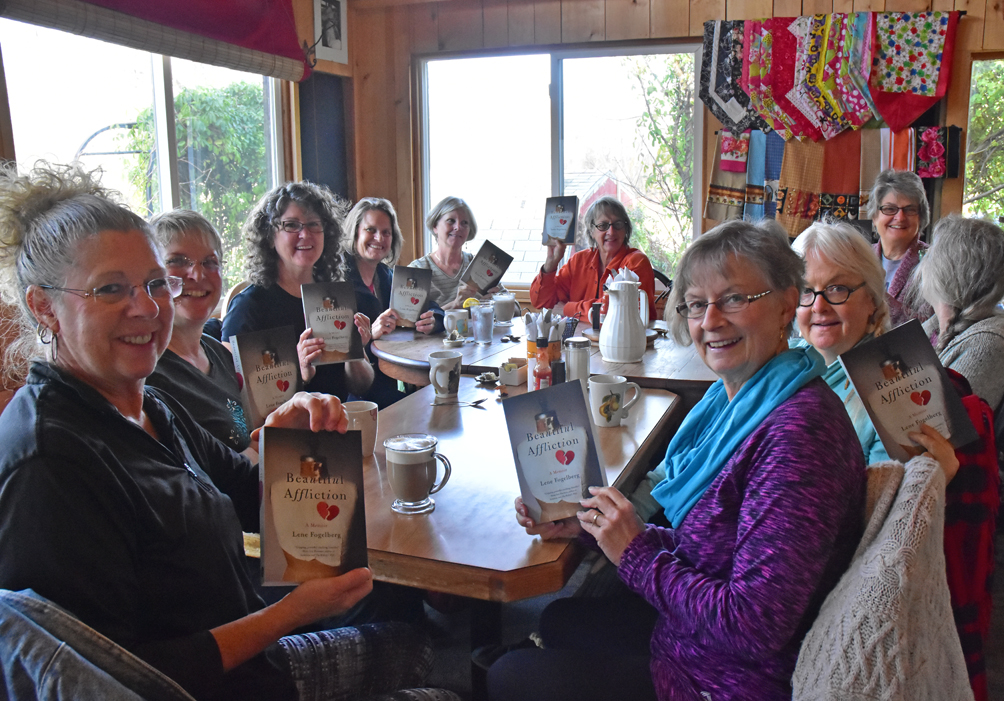

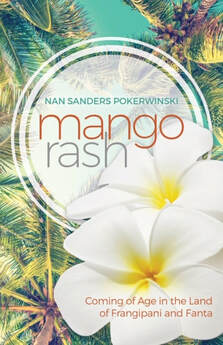
 RSS Feed
RSS Feed